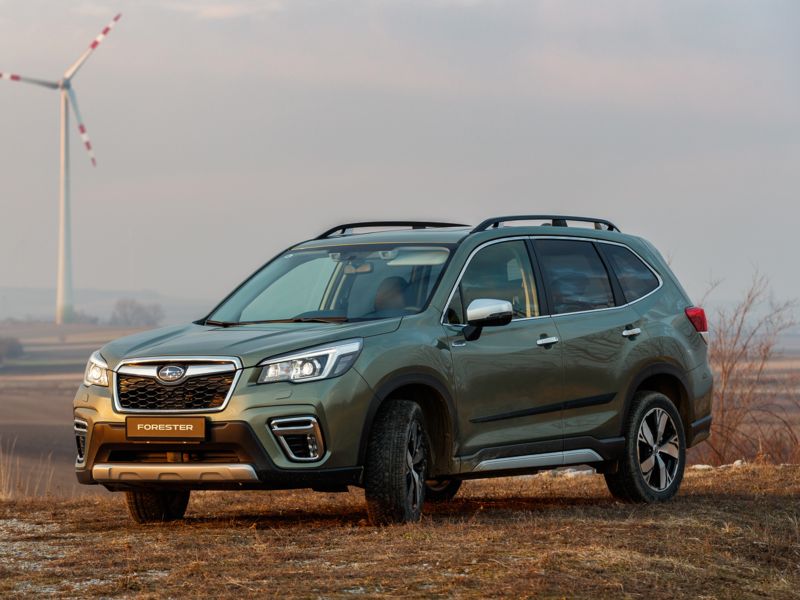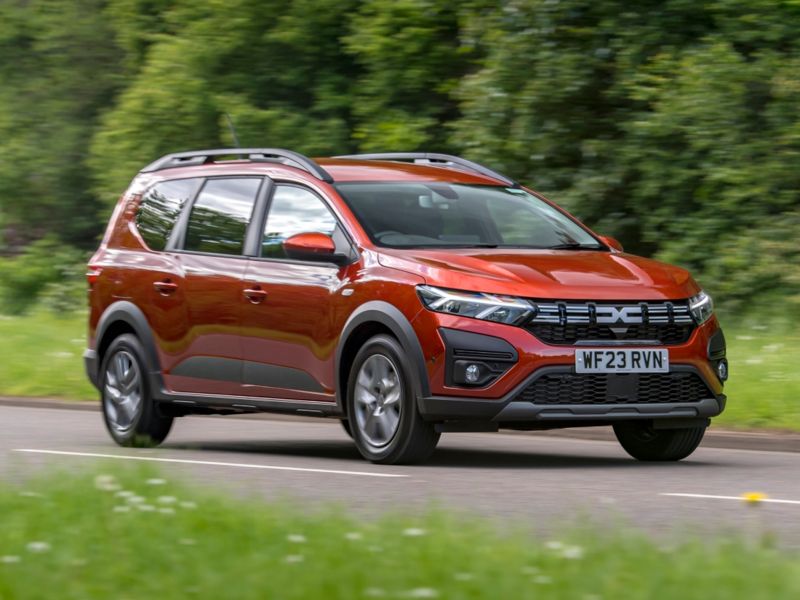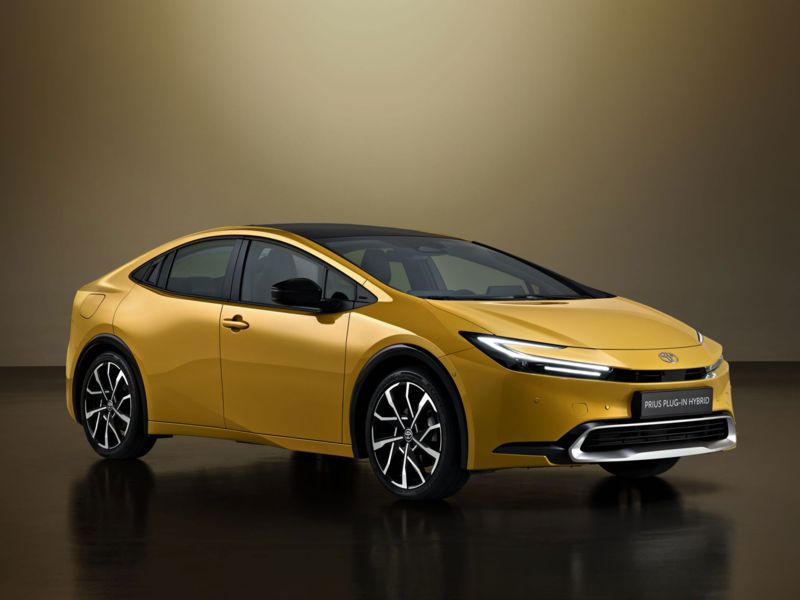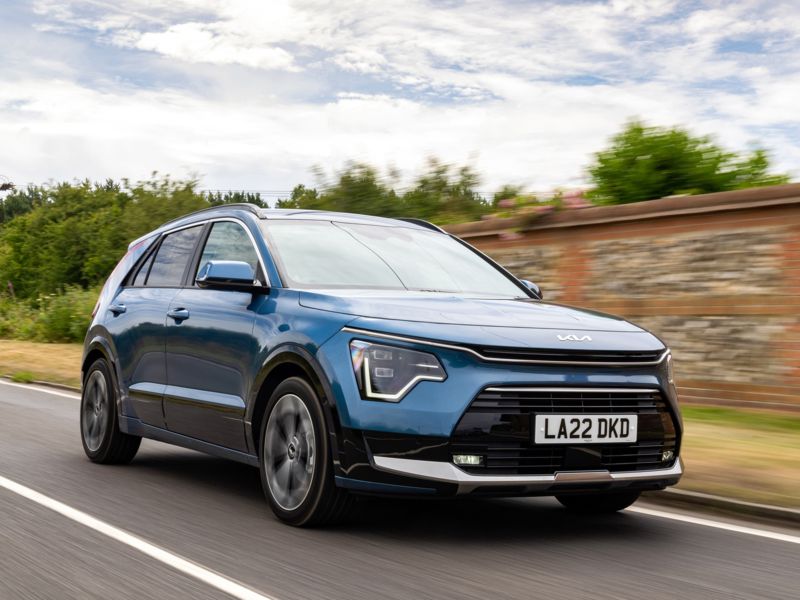Top rated
Top rated
- best buy
- Comfort and practicality
- Brand reliability 0-4 years
Full Access first month £5, then £10.99 per month, cancel at any time
By clicking a retailer link you consent to third party cookies that track your onward journey. If you make a purchase, Which? will receive an affiliate commission which supports our mission to be the UK's consumer champion.

The best hybrid cars can be a good choice for drivers looking to save on fuel costs, but who don’t want to plunge into the deep end with a fully battery-powered electric car.
There are plenty of options available. From the compact Honda Jazz to sporty plug-in hybrid off-roaders such as the Porsche Cayenne E-Hybrid, there's now an electrified model to cater to every taste.
However, we've tested models with disappointing reliability, surprisingly high emissions, and many that simply won't give you the promised fuel economy when you actually get them out on the road.
Looking specifically for an SUV? See the very best hybrid SUVs
Which? members can log in to see the hybrid cars we recommend below. If you're not already a member, join Which? to discover the best hybrid cars and to get access to all of our expert car reviews.
The best hybrid cars are economical, spacious and easy to drive. Here are the top-scoring full hybrid cars that are available to buy new.
Full Access first month £5, then £10.99 per month, cancel at any time
Full Access first month £5, then £10.99 per month, cancel at any time
Full Access first month £5, then £10.99 per month, cancel at any time
Our highest-scoring plug-in hybrids offer a convincing blend of performance, usability and economy.
Full Access first month £5, then £10.99 per month, cancel at any time
Full Access first month £5, then £10.99 per month, cancel at any time
Full Access first month £5, then £10.99 per month, cancel at any time
Some of our highest-scoring full hybrid cars are no longer available to buy new, proving that buying used isn't a bad option.
Full Access first month £5, then £10.99 per month, cancel at any time
Full Access first month £5, then £10.99 per month, cancel at any time
Full Access first month £5, then £10.99 per month, cancel at any time
With lots of new plug-in hybrids set to be announced over the coming years, the used market has some real gems.
Full Access first month £5, then £10.99 per month, cancel at any time
Full Access first month £5, then £10.99 per month, cancel at any time
Full Access first month £5, then £10.99 per month, cancel at any time
Haven't found the hybrid car you're looking for? Use our hybrid car reviews and plug-in hybrid car reviews to filter models by price and test score.
The latest hybrid cars we've reviewed include Best Buys, but also the occasional Don't Buy.

Forester e-Boxer (2019-)
Full Access first month £5, then £10.99 per month, cancel at any time

Jogger Hybrid (2023-)
Full Access first month £5, then £10.99 per month, cancel at any time

Prius (2024-)
Full Access first month £5, then £10.99 per month, cancel at any time

Niro Plug-in Hybrid (2022-)
Full Access first month £5, then £10.99 per month, cancel at any time
Drive smarter and cut costs using our expert advice. Get our Cars newsletter – it's free monthly
Which? members can log in now to see the hybrids you should avoid. Not yet a member? Join Which? today to reveal this information and get access to all of our expert, independent car reviews.
There are three main types of hybrid cars. The best for you will depend on how you use it and – crucially – whether you can easily install a home charger to top up the battery that powers a hybrid's electric motor.

Full hybrids, also known as 'self-charging' hybrids, are petrol cars with a battery pack that is separate from the standard 12V car battery. This battery is charged using energy recuperated while braking or coasting, and is then used to power a small electric motor.
The electric motor can power the car’s wheels in conjunction with the petrol/diesel engine, or even by itself (although typically only for a couple of miles and at moderate speeds).
The electric motor is particularly useful when the car is at its least efficient under petrol or diesel power, such as when setting off, and can sharply cut fuel use during stop-start driving in town. Some hybrids will also charge the batteries directly from the petrol/diesel engine under certain conditions.
Some newer full hybrid models (such as the Nissan Qashqai e-Power) make use of their petrol engine to simply charge a battery pack, which is then used to drive the wheels. In some cases - as with the Honda Civic e:HEV - the petrol engine can power the driven wheels, for instance when quicker acceleration is called for.
From dealerships to classifieds, discover the best place to buy a car.

Plug-in hybrids (PHEVs) such as the Suzuki Across - have much larger batteries than full hybrids and have a much longer electric-only range – normally around 20 to 40 miles. However, to get anywhere near the advertised fuel economy for most models, you'll need to plug it in to charge the battery as much as possible.
Most PHEV models can also use the engine to charge the battery, but this is much less efficient. When the battery is depleted, PHEVs work like a full hybrid.
Our research has revealed that, compared with fully electric cars, PHEVs tend to be less efficient due to their weight and smaller electric motors. If you can regularly plug in a car at home, you may want to consider moving straight to an electric car.
The amount of time it takes to charge a plug-in hybrid car’s battery will depend on both the size of the battery and the speed of the electric charger. If you're charging at home, it could take several hours. If your PHEV can charge at rapid-charging stations, it could take less than an hour.
To find out how we test a car’s handling, head to our how we test cars guide.

The main difference from full and plug-in hybrids is that mild hybrids can’t be driven on electricity alone. The battery is only there to assist the combustion engine, not take over from it. That limits their potential for low CO2 emissions and fuel consumption.
Some give extra power under acceleration; others let the engine be turned off when braking or coasting to save fuel. The mild-hybrid battery can also work with the car’s regular 12V battery to power non-engine systems, such as the car’s air-conditioning.
You probably won't notice much of a difference between driving a mild hybrid and a regular petrol or diesel car. The exception is that, while modern cars cut the engine while stationary to reduce fuel consumption and pollutants, in a number of mild hybrids the engine will cut out while you’re coasting or decelerating.
So if you were slowing down for a set of traffic lights, for example, at low speeds the engine will cut out while you’re still in motion and won’t kick in again until you release the brake and need to accelerate. It can feel a bit weird at first, coasting to a complete stop without the engine on, but you’ll quickly get used to it.
Popular mild hybrids include the Volvo XC60, Mazda 2 and BMW 3 Series.
Hybrid cars run on both fuel and electricity, so in theory they should reduce the amount of petrol you use while driving. This in turn means the car will emit a lower amount of CO2.
However, it really does depend on how you use your hybrid car. If you use the car mostly for shorter journeys, where you can run it solely off the battery, then your hybrid is likely to be better for the environment than a conventional car. But it’s important to remember that it will still be producing emissions in the same way as a normal car when it’s not using the battery. Our road and lab tests reveal the real fuel consumption figure for each car we test, in a variety of different driving scenarios.
Want to buy a low-emissions car? Use our free low-emission cars tool to find one.
There's no clear-cut answer to this, as it will depend on your personal circumstances. There's no denying that electric cars are better for the environment in terms of driving emissions, as they simply don't produce any. But they aren't right for everybody – or at least, not yet.
Here are the main advantages of hybrids vs fully electric cars (EVs).
Whether you're charging an electric car or a plug-in hybrid, the public charging network can be confusing, thanks to all the different networks, connection types and different rates of power available. Make sense of it all with our guide on how to charge an electric car, which also covers charging at home.
Our independent car tests reveal an electric car's real range, so you can get a clear picture of just how far you can go on a single charge – see our best electric cars.
Yes, although it's not happening until 2035. It's part of a package of green initiatives to help meet the UK’s legally binding target of reaching net zero emissions (by 2045 in Scotland, and 2050 in the rest of the UK).
From 2035, the sale of all new mild, full and plug-in hybrids will be banned, along with fully petrol and diesel cars. From this date, the only new cars you can buy will be zero-emission cars. This includes fully electric cars plus zero-emission alternatives, such as hydrogen cars.
Hybrid cars include both a combustion engine and electric motor, so it’s easy to assume there's twice as much to go wrong. But our research suggests that's not true.
Most hybrid cars have CVT ‘gearboxes’ that never disengage, which means less wear than a conventional manual or automatic transmission. There’s also no need for a starter motor or clutch.
The strength of the electrical power provided by a hybrid means that the petrol engine shouldn't be as stressed as a typical combustion engine, and means the manufacturer can choose to use a lighter petrol engine that revs lower.
Find out which models are the least likely to let you down, in our guide to the most reliable cars.
Drive smarter and cut costs using our expert advice. Get our Cars newsletter – it's free monthly.
Find the right policy for your vehicle using the service provided by Confused.com
Get a quote now